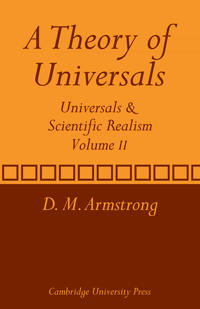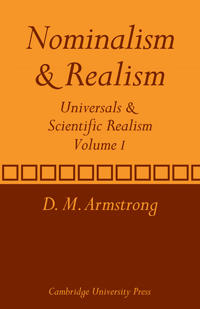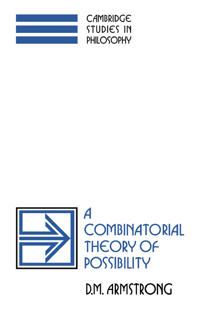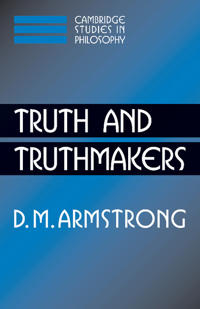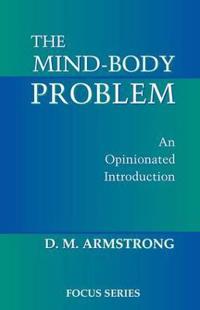A Materialist Theory Of The Mind (Pocket)
avD. M. Armstrong
ISBN: 9780415100311 - UTGIVEN: 1993-09-23This classic work of recent philosophy was first published in 1968, and remains the most compelling and comprehensive statement of the view that the mind is material or physical. In "A Materialist Theory of the Mind," D. M. Armstrong provided insight into the debate surrounding the relationship of t[...]
A Theory of Universals (Häftad)
avD. M. Armstrong
ISBN: 9780521280327 - UTGIVEN: 198010This is a study, in two volumes, of one of the longest-standing philosophical problems: the problem of universals. In volume I David Armstrong surveys and criticizes the main approaches and solutions to the problems that have been canvassed, rejecting the various forms of nominalism and 'Platonic' r[...]
Nominalism and Realism (Häftad)
avD. M. Armstrong
ISBN: 9780521280334 - UTGIVEN: 198010This is a study, in two volumes, of one of the longest-standing philosophical problems: the problem of universals. In volume I David Armstrong surveys and criticizes the main approaches and solutions to the problems that have been canvassed, rejecting the various forms of nominalism and 'Platonic' r[...]
A Combinatorial Theory of Possibility (Pocket)
avD. M. Armstrong
ISBN: 9780521377805 - UTGIVEN: 1989-10David Armstrong's book is a contribution to the philosophical discussion about possible worlds. Taking Wittgenstein's Tractatus as his point of departure, Professor Armstrong argues that nonactual possibilities and possible worlds are recombinations of actually existing elements, and as such are use[...]
Truth and Truthmakers (Häftad)
avD. M. Armstrong
ISBN: 9780521547239 - UTGIVEN: 200405Truths are determined not by what we believe, but by the way the world is. Or so realists about truth believe. Philosophers call such theories correspondence theories of truth. Truthmaking theory, which now has many adherents among contemporary philosophers, is the most recent development of a reali[...]
Mind-Body Problem (Häftad)
avD. M. Armstrong
ISBN: 9780813390574 - UTGIVEN: 199906The relation of mind to body has been argued about by philosophers for centuries. The Mind-Body Problem: An Opinionated Introduction presents the problem as a debate between materialists about the mind and their opponents. After examining the views of Descartes, Hume and Thomas Huxley the debate is[...]


